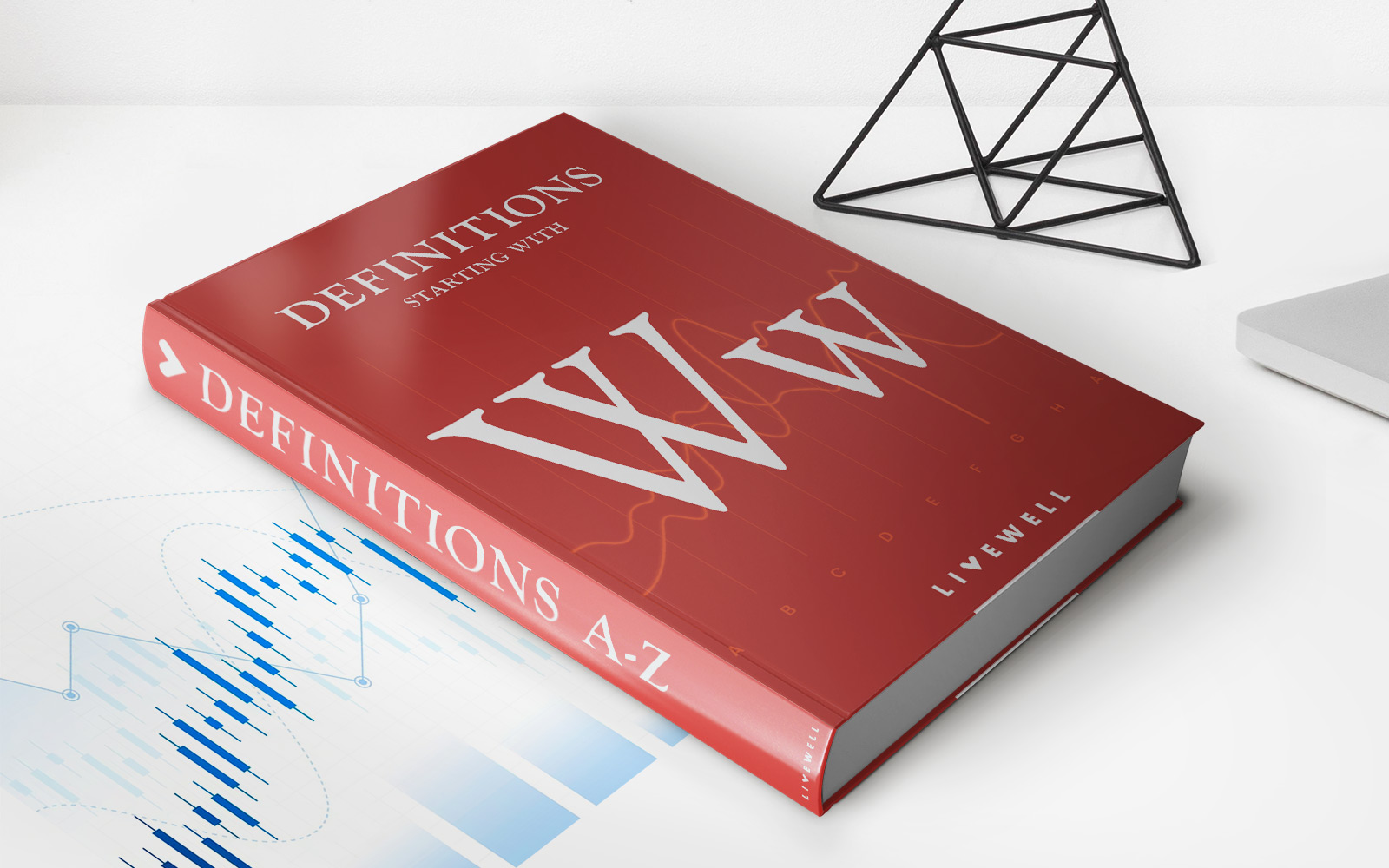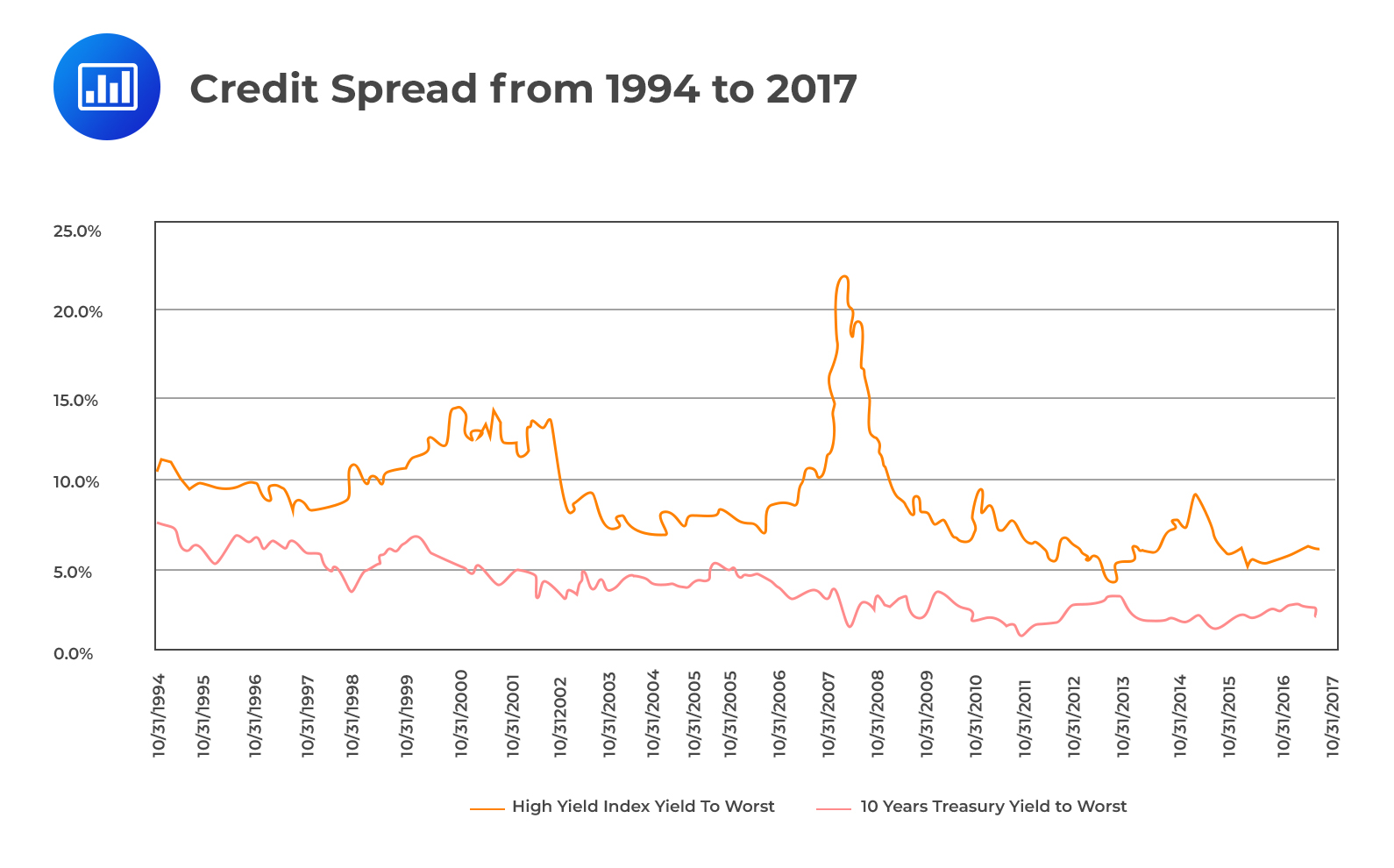

Finance
What Is Wholesale Credit
Modified: March 1, 2024
Discover the concept of wholesale credit in finance and how it can benefit your business. Gain insights into its definition, features, and importance.
(Many of the links in this article redirect to a specific reviewed product. Your purchase of these products through affiliate links helps to generate commission for LiveWell, at no extra cost. Learn more)
Table of Contents
- Introduction
- Definition of Wholesale Credit
- Functions of Wholesale Credit
- Types of Wholesale Credit
- Benefits and Risks of Wholesale Credit
- Role of Wholesale Credit in the Economy
- Key Players in Wholesale Credit
- Examples of Wholesale Credit Transactions
- Regulations and Oversight of Wholesale Credit
- Conclusion
Introduction
Wholesale credit is a critical aspect of the finance industry that plays a significant role in facilitating large-scale financial transactions between banks, financial institutions, and corporate clients. It involves the extension of credit to corporations, governments, and other entities on a wholesale basis, with the aim of supporting their operations, financing capital projects, and managing their working capital needs.
Wholesale credit differs from retail credit, which is typically offered to individual consumers for personal use. While retail credit focuses on small-scale borrowing, such as credit cards, mortgages, and personal loans, wholesale credit deals with larger sums of money and encompasses a broader range of financial products and services.
This article will provide a comprehensive overview of wholesale credit, including its definition, functions, types, benefits, risks, and its crucial role in the economy. Additionally, we will explore key players in the wholesale credit market, examine real-world examples of wholesale credit transactions, and discuss the regulations and oversight that govern this sector.
By the end of this article, readers will have a clear understanding of wholesale credit and its importance within the financial ecosystem.
Definition of Wholesale Credit
Wholesale credit refers to the provision of credit or loans to corporations, governments, and other large entities on a wholesale or institutional basis. It is a specialized form of credit that enables businesses and organizations to access substantial amounts of capital to support various financial activities. Wholesale credit transactions are typically carried out between banks, financial institutions, and corporate clients, with the aim of meeting their financing needs and facilitating economic growth.
Unlike retail credit, which is tailored towards individual consumers, wholesale credit deals with larger sums of money and is structured to meet the unique requirements of corporate borrowers. The terms and conditions of wholesale credit are often more complex than retail credit, considering the larger scale and complexity of the borrowing entity’s operations.
Wholesale credit encompasses a wide range of financial products and services, including syndicated loans, revolving credit facilities, trade finance, and commercial paper. These credit facilities are designed to provide liquidity, working capital, and longer-term financing options to borrowers.
One of the distinguishing features of wholesale credit is its focus on relationship-based lending. Unlike retail credit, which often relies on standardized credit scoring models, wholesale credit decisions are based on in-depth analysis of the borrower’s financials, creditworthiness, industry standing, and the relationship between the lender and the borrower. This personalized approach allows lenders to evaluate the unique risks and opportunities associated with each wholesale credit transaction.
Overall, wholesale credit plays a crucial role in supporting the operations and growth of large entities by providing them with the necessary funds to invest in new projects, expand their operations, manage cash flows, and meet their debt obligations. It serves as the foundation for financing large-scale capital projects and stimulates economic activities at a macro level.
Functions of Wholesale Credit
Wholesale credit serves several important functions within the financial industry and plays a vital role in supporting the operations and growth of corporations, governments, and other large entities. Here are the key functions of wholesale credit:
- Capital Provision: One of the primary functions of wholesale credit is to provide capital to businesses and organizations. Through various credit facilities, such as syndicated loans and revolving credit lines, wholesale lenders offer substantial amounts of funds to borrowers. This capital is used to finance new projects, invest in research and development, expand operations, and meet short-term and long-term financial needs.
- Liquidity Management: Wholesale credit also helps borrowers effectively manage their liquidity. Businesses often encounter fluctuations in cash flows and require access to readily available funds. Wholesale credit facilities, such as lines of credit and commercial paper, allow borrowers to access cash when needed and manage their working capital requirements. By ensuring a steady flow of funds, wholesale credit ensures that businesses can successfully meet their operational and financial obligations.
- Risk Management: Another essential function of wholesale credit is risk management. Lenders conduct rigorous credit assessments, financial analysis, and due diligence to evaluate the creditworthiness of borrowers. This process helps lenders identify and assess potential risks associated with the borrower’s financial health, industry dynamics, and overall market conditions. By mitigating risk, wholesale credit enhances the stability and security of both lenders and borrowers in the financial ecosystem.
- Facilitating Trade: Wholesale credit also plays a critical role in facilitating international trade. Trade finance, a subset of wholesale credit, provides financing options to companies engaged in importing and exporting goods and services. It includes services like letters of credit, documentary collections, and trade-related loans, which ensure that businesses have the necessary financial support to engage in cross-border trade. By reducing trade barriers and providing efficient financing solutions, wholesale credit promotes global commerce and economic growth.
- Interest Rate Management: Wholesale credit offers borrowers access to customizable interest rate structures, providing them with flexibility in managing their borrowing costs. This is especially relevant in an environment where interest rates are dynamic and subject to market fluctuations. Wholesale credit facilities often provide options for fixed or floating interest rates, allowing borrowers to choose the most suitable financing arrangement based on their risk appetite and market conditions.
- Supporting Financial Markets: Wholesale credit contributes to the stability and liquidity of financial markets. It allows banks and financial institutions to allocate funds efficiently and channel them towards productive economic activities. The availability of wholesale credit enhances the overall functioning of financial markets and supports the broader economy by facilitating investment, job creation, and economic development.
Overall, the functions of wholesale credit are integral to the smooth operation of the financial system, providing essential capital, risk management, and liquidity services to organizations of all sizes.
Types of Wholesale Credit
Wholesale credit encompasses a variety of lending instruments and financing options, each tailored to meet the diverse needs of corporate borrowers. Here are some common types of wholesale credit:
- Syndicated Loans: Syndicated loans involve a group of lenders collectively providing funds to a borrower. This type of wholesale credit is typically used for large-scale projects, mergers and acquisitions, or financing significant investments. Syndicated loans allow borrowers to access substantial amounts of capital while spreading the risk among multiple lenders.
- Revolving Credit Facilities: Revolving credit facilities provide borrowers with access to a predetermined amount of capital that can be borrowed, repaid, and borrowed again. These types of credit facilities are often used to manage short-term working capital needs or fluctuating cash flows. Revolving credit facilities give borrowers flexibility in utilizing the funds based on their immediate requirements.
- Commercial Paper: Commercial paper refers to short-term debt instruments issued by corporations to meet their immediate financing needs. This type of wholesale credit is typically unsecured and has a maturity period of less than a year. Commercial paper offers borrowers a cost-effective way to raise funds quickly, while providing investors with a short-term investment opportunity.
- Trade Finance: Trade finance facilities are used to facilitate international trade transactions. They include letters of credit, documentary collections, and trade-related loans. Trade finance provides financing options to importers and exporters, mitigating the risks associated with cross-border trade and ensuring the smooth flow of goods and services.
- Equipment Financing: Equipment financing involves providing credit or leasing options to businesses for the acquisition of machinery, vehicles, and other types of equipment. Lenders may finance the entire cost of the equipment or provide a partial financing solution. This type of wholesale credit allows businesses to acquire essential assets without depleting their working capital.
- Structured Financing: Structured financing refers to complex arrangements tailored to meet the specific needs of borrowers. It involves the combination of different financial instruments, such as loans, bonds, and derivatives, to create a customized financing solution. Structured financing allows borrowers to optimize their cost of capital and manage risks more effectively.
These are just a few examples of the types of wholesale credit available in the market. The choice of wholesale credit instrument depends on the borrower’s specific needs, the purpose of the funding, the creditworthiness of the borrower, and market conditions.
Benefits and Risks of Wholesale Credit
Wholesale credit offers several benefits to both borrowers and lenders, but it also comes with inherent risks that need careful consideration. Understanding these benefits and risks is crucial for all parties involved in wholesale credit transactions:
Benefits of Wholesale Credit:
- Access to Large Amounts of Capital: Wholesale credit allows borrowers to access substantial amounts of capital that may not be available through other types of financing. This enables businesses to pursue growth opportunities, fund expansion projects, and invest in research and development efforts.
- Flexibility in Financing Needs: Wholesale credit offers borrowers greater flexibility in structuring their financing arrangements. They can choose from various credit facilities, terms, and interest rate options to match their specific needs. This flexibility allows borrowers to align their financing with their cash flow patterns and investment horizons.
- Better Terms and Conditions: Compared to retail lending, wholesale credit often comes with more favorable terms and conditions due to the larger scale of the transactions. Borrowers may benefit from lower interest rates, longer repayment periods, and more customized financing solutions tailored to their unique needs.
- Relationship Building: Wholesale credit fosters long-term relationships between lenders and borrowers. Through frequent interactions, lenders gain a better understanding of the borrower’s operations, creditworthiness, and growth potential. This relationship-based approach can lead to enhanced trust, future financing opportunities, and better collaboration between the parties involved.
- Support for Economic Growth: Wholesale credit plays a vital role in stimulating economic growth by providing the necessary financing for large-scale projects and corporate activities. It contributes to job creation, infrastructure development, and industry expansion, thereby driving overall economic prosperity.
Risks of Wholesale Credit:
- Credit Risk: The primary risk associated with wholesale credit is credit risk, which refers to the potential for borrowers to default on their loan obligations. Lenders must carefully assess the creditworthiness and financial health of borrowers to mitigate this risk. A default or delayed payment can lead to financial losses for lenders and impact their financial stability.
- Market Risk: Wholesale credit transactions are influenced by market conditions, including interest rates, currency exchange rates, and economic trends. Market risks such as fluctuations in interest rates, political instability, or economic downturns can impact the performance of wholesale credit portfolios and can expose both borrowers and lenders to uncertainty and potential financial losses.
- Liquidity Risk: Borrowers relying heavily on wholesale credit may face liquidity risk if the availability of funds becomes limited or the cost of borrowing increases significantly. This risk can arise due to changes in market conditions, lender requirements, or disruptions in the broader financial system.
- Operational Risk: Wholesale credit activities involve complex operational processes, including credit analysis, loan documentation, and transaction execution. Operational risk refers to the potential for errors, fraud, and inefficiencies in these processes, which can result in financial loss, reputational damage, and regulatory non-compliance.
- Regulatory and Compliance Risks: Wholesale credit activities are subject to extensive regulations and oversight by regulatory authorities. Lenders and borrowers must ensure compliance with relevant laws and regulations to avoid legal complications, penalties, or reputational harm.
Both lenders and borrowers must carefully assess and manage these risks associated with wholesale credit transactions to ensure financial stability, minimize potential losses, and protect their interests.
Role of Wholesale Credit in the Economy
Wholesale credit plays a crucial role in the overall functioning of the economy by providing essential financing solutions to corporations, governments, and other large entities. Here are the key ways wholesale credit contributes to the economy:
Capital Investment and Economic Growth:
Wholesale credit enables businesses to access substantial amounts of capital needed for large-scale projects, such as infrastructure development, manufacturing expansion, and technological advancements. This capital injection stimulates economic growth, creates job opportunities, and drives innovation and productivity enhancements. It fuels investments that are instrumental in driving economic development and improving the overall standard of living.
Liquidity and Working Capital Management:
Wholesale credit helps businesses effectively manage their liquidity and working capital needs. By providing access to funds, businesses can optimize their cash flow, meet day-to-day expenses, finance procurement of raw materials, and manage short-term obligations. This ensures the smooth operation of businesses, enhances their financial stability, and contributes to sustainable economic growth.
International Trade Facilitation:
Wholesale credit, particularly trade finance, plays a vital role in facilitating cross-border trade. It provides financing options to importers and exporters, helps mitigate the risks associated with international transactions, and ensures the smooth flow of goods and services. By reducing trade barriers and facilitating efficient payment mechanisms, wholesale credit promotes international trade, strengthens global economic interdependencies, and contributes to economic integration.
Support for Small and Medium-Sized Enterprises (SMEs):
Wholesale credit plays a critical role in supporting the growth and development of small and medium-sized enterprises (SMEs). These businesses often face challenges in accessing financing due to their size, limited assets, or lack of credit history. Wholesale credit facilities, such as syndicated loans and revolving credit lines, provide SMEs with the necessary capital to expand their operations, invest in innovation, and compete effectively in the market. This support for SMEs drives entrepreneurship, fosters job creation, and adds dynamism to the economy.
Financial Market Stability:
Wholesale credit contributes to the stability and liquidity of financial markets. It allows financial institutions to allocate funds efficiently, linking lenders with sophisticated borrowers. By providing liquidity and risk management tools, wholesale credit enables the proper functioning of financial markets, facilitates price discovery, and ensures the availability of capital for productive investments.
In summary, wholesale credit plays a vital role in driving economic growth, facilitating international trade, supporting small businesses, ensuring financial market stability, and enhancing overall economic prosperity. Its ability to provide significant funding, manage liquidity, and support various types of financial activities is essential for a well-functioning and thriving economy.
Key Players in Wholesale Credit
Various entities participate in the wholesale credit market, each performing essential roles in facilitating and executing wholesale credit transactions. Here are the key players involved:
Commercial Banks:
Commercial banks are the primary providers of wholesale credit. They have the expertise, infrastructure, and capital to extend credit to large corporations and governments. Commercial banks leverage their balance sheets to offer a wide range of wholesale credit facilities, including syndicated loans, revolving credit lines, and trade finance. They play a critical role in facilitating economic activities by allocating funds, managing risks, and providing essential financial services to borrowers.
Investment Banks:
Investment banks are instrumental in arranging syndicated loans and providing advisory services to borrowers and lenders in wholesale credit transactions. They help structure and coordinate complex credit arrangements, bring together a syndicate of lenders, and assist in pricing and distribution of the credit. Investment banks also play a crucial role in the wider capital markets and provide strategic advice to businesses on mergers and acquisitions, debt issuances, and other financial transactions.
Asset Management Firms:
Asset management firms, including mutual funds, hedge funds, and other institutional investors, are significant players in the wholesale credit market. They invest in various credit products, such as syndicated loans and commercial paper, aiming to earn attractive returns for their clients. Asset management firms provide liquidity to the market, diversify risk for their investors, and enhance the depth and efficiency of the wholesale credit market.
Pension Funds and Insurance Companies:
Pension funds and insurance companies are important participants in wholesale credit activities. They invest a significant portion of their portfolios in fixed-income securities, including corporate bonds and other loan products. By deploying their funds into wholesale credit, pension funds and insurance companies generate income to meet their long-term contractual obligations while managing risks associated with their investment portfolios.
Regulatory Authorities:
Regulatory authorities, such as central banks and financial regulatory bodies, play a critical role in overseeing and regulating wholesale credit activities. They establish prudential regulations, conduct supervision, and enforce compliance to maintain the financial stability and integrity of the wholesale credit market. Regulatory authorities ensure fair practices, promote transparency, and safeguard the interests of all participants involved.
Corporate Borrowers:
Large corporations and government entities seeking financing are the primary beneficiaries of wholesale credit. They rely on wholesale credit to fund their operations, invest in growth opportunities, manage working capital needs, and undertake large-scale capital projects. Corporate borrowers maintain relationships with financial institutions and rely on them to provide the necessary credit facilities and support to meet their financing requirements.
The collaboration and coordination among these key players are vital in facilitating wholesale credit transactions, ensuring efficient allocation of capital, and supporting economic growth and development.
Examples of Wholesale Credit Transactions
Wholesale credit transactions encompass a wide range of financial activities and products. Here are a few examples of wholesale credit transactions that occur in the financial industry:
Syndicated Loan for Infrastructure Development:
A consortium of commercial banks and investment banks may organize a syndicated loan to finance a large-scale infrastructure project, such as the construction of a highway or a power plant. The borrower, typically a government or a corporate entity, receives funding from multiple lenders, who jointly share the loan risk. Syndicated loans provide the borrower with access to substantial capital while allowing the lenders to diversify their exposure to a single borrower and earn interest income on the loan.
Revolving Credit Facility for Working Capital Needs:
A corporation may negotiate a revolving credit facility with a bank to manage its short-term working capital requirements. The company can draw on the agreed-upon credit line as needed to cover operational expenses, such as inventory purchases, payroll obligations, or accounts payable. The revolving credit facility provides the borrower with flexibility and ensures that the company has access to funds to maintain smooth operations during periods of cash flow fluctuations.
Trade Finance for Importers and Exporters:
A company engaged in international trade may secure trade finance facilities from a bank to facilitate the import or export of goods. For example, an importer may request a letter of credit from a bank, which guarantees payment to the exporter upon the presentation of certain documents. This minimizes the credit and payment risks for both parties, fosters trust, and enables smooth cross-border transactions.
Commercial Paper Issuance:
A corporation in need of short-term financing may issue commercial paper, which is a form of unsecured debt instrument. The commercial paper represents a borrower’s promise to repay the principal amount to the investor within a specified maturity date, usually less than one year. Investors, such as mutual funds or money market funds, purchase commercial paper to earn attractive returns in the short-term while providing the corporation with essential liquidity.
Syndicated Loan for Mergers and Acquisitions:
When a company seeks to acquire another company, it may arrange a syndicated loan with a group of lenders to finance the acquisition. The funds from the syndicated loan are used to pay the purchase price and cover associated costs. The syndicated loan allows the acquiring company to access a large amount of capital necessary for the transaction while spreading the risk among the participating lenders.
These examples illustrate the diverse range of wholesale credit transactions available in the market. The specific structure and terms of these transactions vary based on the needs of the borrowers, the prevailing market conditions, and the requirements of the participating lenders.
Regulations and Oversight of Wholesale Credit
Given the significant role and potential risks associated with wholesale credit, there are regulatory frameworks and oversight mechanisms in place to ensure the stability and integrity of the financial system. Here are some key aspects of the regulations and oversight of wholesale credit:
Prudential Regulations:
Financial regulators implement prudential regulations to safeguard the soundness and stability of the banking and financial sector. These regulations set requirements for capital adequacy, liquidity management, risk management, and disclosure practices of banks and financial institutions offering wholesale credit. Prudential regulations aim to enhance the resilience of institutions, promote appropriate risk-taking, and protect depositors and investors.
Compliance with Anti-Money Laundering (AML) and Counter Terrorism Financing (CTF) Laws:
Wholesale credit transactions are subject to stringent anti-money laundering and counter-terrorism financing laws and regulations. Banks and financial institutions are required to implement robust customer due diligence measures, monitor transactions for suspicious activities, and report any suspicious transactions to the appropriate authorities. Compliance with AML and CTF laws helps prevent abuse of the financial system for illicit purposes and contributes to the security and stability of the overall economy.
Regulatory Reporting and Disclosure Requirements:
Regulatory authorities mandate regular reporting and disclosure requirements for wholesale credit transactions. Banks and financial institutions must provide detailed information about their exposure to various types of wholesale credit, including the nature and scope of their loan portfolios, risk concentrations, and compliance with regulatory limits. These reporting and disclosure requirements allow regulators to assess the overall risks in the system, monitor compliance, and ensure transparency.
Supervision and Examination:
Regulatory authorities conduct regular supervisory examinations and assessments of banks and financial institutions engaged in wholesale credit activities. Supervision aims to evaluate the financial condition, risk management practices, and compliance with regulations of these institutions. Regulatory authorities have the power to intervene, impose sanctions, or even revoke licenses if they identify inadequate risk management practices, non-compliance, or other breaches of regulations.
International Regulatory Coordination:
Wholesale credit activities often involve cross-border transactions and global financial institutions. International regulatory coordination and cooperation among supervisory authorities are crucial for effective oversight of wholesale credit. Regulatory bodies collaborate on prudential standards, harmonization of regulations, sharing of information, and coordination of supervisory activities to ensure consistent application of regulations and mitigate risks associated with cross-border wholesale credit activities.
Overall, the regulations and oversight of wholesale credit are aimed at maintaining financial stability, protecting the interests of stakeholders, preventing systemic risks, and ensuring the proper functioning of the wholesale credit market.
Conclusion
Wholesale credit plays a pivotal role in the finance industry and the broader economy. It serves as a catalyst for economic growth, providing corporations, governments, and other large entities with the necessary financing to support their operations, investments, and working capital needs. Through a wide range of credit facilities, such as syndicated loans, revolving credit lines, trade finance, and commercial paper, wholesale credit enables businesses to unlock capital, stimulate growth, and navigate the complexities of the modern financial landscape.
The functions of wholesale credit, including capital provision, liquidity management, risk mitigation, and trade facilitation, are indispensable for economic vitality and development. Wholesale credit supports the expansion of infrastructure, sustains international trade, fosters entrepreneurship, and contributes to job creation. It fuels innovation, promotes efficiency, and enhances the stability of financial markets.
However, wholesale credit is not without its risks. Credit risk, market risk, liquidity risk, operational risk, and regulatory risks must be carefully managed by all participants in wholesale credit transactions to safeguard stability and soundness. Robust regulatory frameworks, prudential regulations, and diligent oversight are vital to maintain the integrity and resilience of the financial system and protect the interests of stakeholders.
In conclusion, wholesale credit serves as a critical foundation for economic growth, enabling corporations and governments to access the capital needed to drive innovation, expand operations, and create societal value. Through effective risk management, regulatory compliance, and collaborative efforts among key players, wholesale credit can continue to act as an engine of prosperity, fueling economic success and laying the groundwork for a dynamic and sustainable future.














